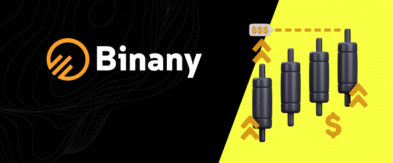What is penny stock?
In the financial realm, the question often arises – “what is penny stock?”. Penny stocks refer to shares of small public companies traded at significantly low prices; often less than $5.

Despite their name, penny stocks might not always be obtainable for mere pennies. The alluring aspect of these stocks lies in their low acquisition cost, which presents an opportunity for substantial returns if the company experiences growth.
Penny stocks are generally considered to be more volatile compared to traditional stocks. This implies that while there is a considerable chance for profit, the risks involved are equally high. Furthermore, these stocks are less liquid compared to their counterparts in the mainstream market, making buying and selling positions at desired price points slightly challenging.
What are Penny Stocks
When venturing into the intricate world of investment, understanding the essence of penny stocks is paramount. Penny stocks are shares in small companies that trade at a low price per share, often less than five dollars. Their appeal lies in the low barrier to entry, offering new investors an affordable route to start their investment journey.
Features of Penny Stocks
Delving into the characteristics of penny stocks, it’s pivotal to highlight that these are shares of smaller companies traded at significantly lower prices compared to other stocks, generally less than $5 per share. They are traded on over-the-counter (OTC) markets or smaller exchanges. Let’s delve into specific features:
- Low Pricing: Penny stocks are notably low priced, enabling investors to buy a large number of shares with a small amount of capital. This low barrier to entry makes them particularly attractive to new or budget-conscious investors.
- High Volatility: These stocks are known for their high volatility. This can mean larger gains, but also a higher risk of substantial losses.
- Limited Information: Companies listed in the penny stock market often provide limited information, which makes it challenging for investors to conduct comprehensive research.
- Susceptibility to Fraud: Due to less stringent regulatory requirements, the penny stock market is more susceptible to fraud and manipulative trading schemes.
- Lack of History: Many companies represented in the penny stock market have a short business history, and some might not have a proven track record, increasing the risk factor for investors.
Pros and Cons of Penny Stocks
| Pros | Cons |
| Affordable entry point | High volatility |
| High potential returns | Prone to fraud and manipulations |
| Suitable for small investments | Limited availability of reliable data |
| Opportunities for undiscovered gems | Often backed by unproven companies |
Understanding the pros and cons of penny stocks can assist investors in making informed decisions. While the affordable entry point and the prospect of high returns are enticing, the high volatility and susceptibility to fraud present substantial risks.
Therefore, it is advised for investors to approach the penny stock market with a well-strategized plan, armed with adequate knowledge and a clear understanding of both the opportunities and the risks involved. It is a market that can offer significant rewards but requires a cautious and well-informed approach to navigate successfully.
Conclusion
To sum up, penny stocks represent a significant aspect of the financial market, offering opportunities for large profits from small investments. However, the high risk and potential for fraud mean that they are not suitable for everyone. Investors interested in this avenue should proceed with caution, arming themselves with comprehensive knowledge and a well-planned strategy before delving into the penny stock market. It remains a realm where one can both lose big and win big, underscoring the importance of informed decision-making in the world of investments.

Financial writer and market analyst with a passion for simplifying complex trading concepts. He specializes in creating educational content that empowers readers to make informed investment decisions.


